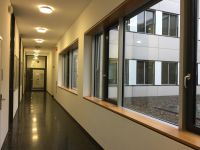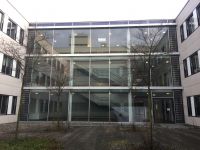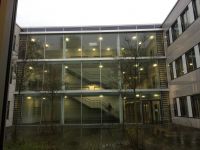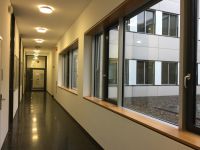From October 18 to 27, 2017, our Master's Student Ms. Qi Qi [齐琪] of the University of Science and Technology of China (USTC) [中国科学技术大学] conducted an invited research stay at the Chair of System Simulation of the Department of Informatics of the Friedrich-Alexander-Universität Erlangen-Nürnberg (FAU) in Erlangen, Germany.
The Chair for System Simulation performs research on the modeling and efficient simulation and optimization of complex systems in science and engineering. Its focus is on the design and the analysis of algorithms and tools for these purposes. Since most simulations of complex systems are computationally heavy, the work of the group therefore is centered around diverse high-performance computation (HPC) techniques. They
- research HPC models, by developing tailored simulation algorithms for physical applications, three phase and thermal free flows based on the lattice Boltzmann method, and multi-level algorithms,
- research scientific computing, by researching computational optics, numerical analysis, and related HPC methods, and
- develop HPC software, including visualisations of simulation results, a framework for simulation of fluid scenarios based on the Lattice Boltzmann, and software for rigid body dynamics
Ms. Qi was invited by of Prof. Dr. Harald Köstler, whose main research interest is on the latter point. He works on the ExaStencils project for Advanced Stencil-Code Engineering. Stencil codes are compute-intensive algorithms in which data points in a grid are redefined repeatedly as a combination of the values of neighboring points. The neighborhood pattern used is called a stencil. Stencil codes are used for the solution of discrete partial differential equations and the resulting linear systems.














